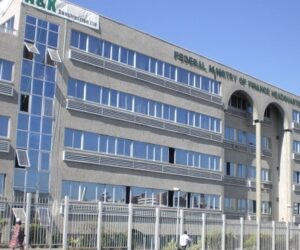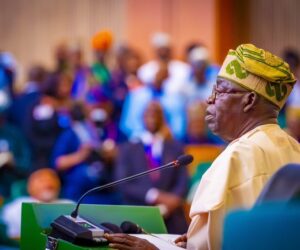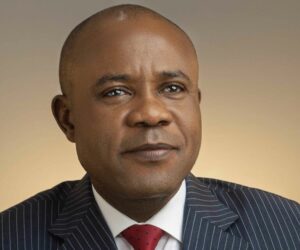The Nigeria Medical Association (NMA) has called for a stronger and integrated referral healthcare system to link primary, secondary, and tertiary facilities for effective patient-centred and positive outcomes.
Bala Audu, the president of NMA, made the call on Tuesday at the opening ceremony of the 2025 Physicians’ Week of NMA, Anambra Branch, in Nnewi.
In his speech, delivered by Princeton Okam, chairperson of the NMA in Anambra State, Mr Audu said there was an urgent need to strengthen every link in the healthcare value chain with well-crafted and evidence-based policies.
The News Agency of Nigeria reports that the theme of the Week was “Healthcare as a Value Chain: Building Efficiency from Policy to Patient”.
Mr Audu said the Nigerian healthcare system was overstretched and the value chain would not function where doctors and other health professionals worked under inadequate infrastructure, delayed remuneration, and unsafe conditions.
He said there was an urgent need for a coordinated, accountable, and effective health system in which every component, from policy formulation to patient care, was optimised to deliver true value to the Nigerian people.
The NMA president said the Nigerian healthcare system was weak because of policy incoherence, poor financing mechanisms, non-workforce sustainability, and inadequate system integration.
He said Nigeria’s health expenditure was 4.08 per cent of GDP, below the global average, with a healthy life expectancy of approximately 55 years, while health worker density is about 1.83 per 1,000 population.
“NMA calls for a comprehensive policy reform driven by implementation and measurable accountability, re-engineered health financing focused on preventive and primary care.
“The consequence is a health system that is overstretched, underfunded, and underperforming.
“Nigeria’s maternal mortality ratio continues to hover above 1,000 deaths per 100,000 live births, and up to 80 per cent of deaths in rural communities are linked to weaknesses in the primary healthcare system.
“We therefore demand implementation-ready policies that are context-sensitive, inclusive and aligned with the realities at the primary, secondary, and tertiary levels.
“Our financing model must evolve beyond fragmented, reactive spending, every naira allocated must add measurable value to patient outcomes,” he said.
Mr Audu said the exodus of skilled professionals and brain drain crisis must be addressed with intentional incentives and supportive policies, noting that every other link would collapse without a strong workforce.
He said primary health centres without basic equipment, essential medicines, or functioning referral systems must be integrated and linked with secondary and tertiary facilities to fix the problem.
“NMA wants a Nigeria where every pregnant woman in a rural community will have timely access to skilled care, drugs are available, referrals are seamless, and where doctors are empowered to save lives rather than struggle against systemic failure,” he said.
Reminder of doctors’ Hippocratic Oath
In his address, Mr Okam said the 2025 Anambra State Physicians’ Week/ and Scientific Conference was an event with a series of activities which reminded members of their Hippocratic Oath.
Mr Okam said it was time to look back, reassess their practices as doctors and leaders in the health team, and review the prevailing circumstances affecting effective health care delivery to the public.
He said activities in the one-week programme included lectures, visits to the sick and aged members, visits to orphanages, school career and health talks, indoor and outdoor games, medical outreaches, awards, luncheons, and church thanksgiving.
“It is my earnest desire that this year’s physicians’ week will impact us positively even as we all strive towards living a fulfilled life that will leave indelible marks in the sands of time,” he said.









